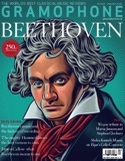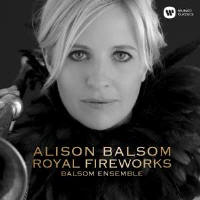Texte paru dans: / Appeared in: |
|
|
Outil de traduction (Très approximatif) |
|
|
Reviewer: Charlotte Gardner When the highlights of Alison Balsom’s last album, ‘Jubilo’ (12/16), were its handful of works recorded not on a modern instrument but on the natural, valveless Baroque trumpet, it’s good news indeed to have her now focusing entirely on it for this latest recording. In terms of scale alone, the programme’s main acts are new transcriptions by Simon Wright of Handel’s Music for the Royal Fireworks and a suite from Bach’s Christmas Oratorio, designed ‘to elevate the natural trumpet and place it front and centre’ by means of what sound like some fairly dramatic scoring decisions: Balsom joined brass-wise only by other natural trumpeters, no woodwind at all, and the remainder of the orchestra taken down to the chamber realms of just four violins, viola, continuo and timpani. As for how much of a difference you actually hear, certainly with the disc-opening Handel Fireworks Music you do immediately spot that the woodwind are gone, and that the brass colour is entirely and beautifully trumpet. Still, when Handel’s original scoring already made much of three natural trumpets, when the engineering here pushes Balsom and her five natural trumpet colleagues right into the limelight, when the timpani is still gloriously rumbling away and when David Goode’s organ continuo is richly underpinning the lot, the sound is smoother but not actually noticeably smaller. However, you do really get the effect of the smaller forces with the Bourrée, and then with the Bach you indisputably get the full effect of big brass versus chamber strings right from ‘Jauchzet, frohlocket!’. Whether any of this goes as far as to earn the label ‘maverick’, which Balsom tentatively attaches to it in her booklet note, I’m not so sure. Perhaps it does with the Bach. Either way, the important thing is that it sounds good. All the above said, though, for me the album’s real gold lies in its two D major solo trumpet works by Purcell and Telemann: the ravishingly soft and lyrical solemnity Balsom brings to the opening Adagio of Telemann’s first Trumpet Concerto; the suppleness she brings to the Purcell Sonata’s outer movements and the luminous, clean-toned sobriety of its strings-only Adagio. Purcell’s Music for the Funeral of Queen Mary then makes for a thoroughly punchy conclusion, not least for the fine vocal performances from its one-to-a-part chorus and the addition of sombre sackbut. |
|




